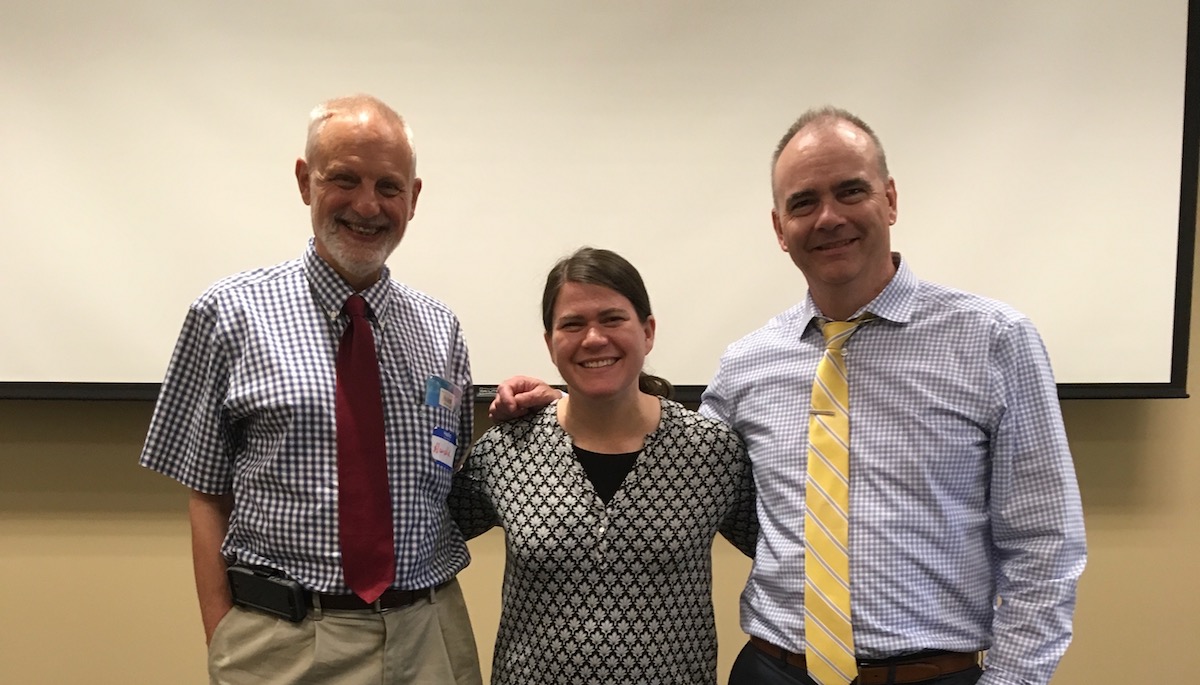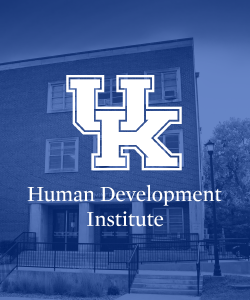By Amanda Kelley Corbin
Sean Roy (right), who is the Youth Employment Solutions (YES!) Center’s state liaison to Kentucky and a training associate with TransCen (adapted from “Transition Center”), a national nonprofit organization that specializes in school-to-work transition for students with disabilities, was a guest speaker at a recent KentuckyWorks community conversation and parent engagement training session. Before the events, he provided his perspectives on youth and family engagement around employment for students with disabilities.
TransCen provides technical assistance and guidance to our Kentucky employment initiative, KentuckyWorks, including the development of a new parent engagement curriculum for educators, parent advocates, and employment professionals. Mr. Roy sees training for professionals about how to talk to families and raise expectations as a way to provide hope. “From a young age, families are often bombarded with messages about what their child can’t do,” he said. “We need to change the messaging and help families see the opportunities and have the individual (and professionals as well) envision employment in their future.”
KentuckyWorks and TransCen are working to close the employment gap for individuals with significant disabilities by sharing a vision of employment with families and acknowledging their concerns. It’s important that providers be respectful of families’ apprehension and work with them. Mr. Roy said, “The goal is that the youth will have the biggest stake. It is their choice what their world will look like. That’s hard for some kids and that looks different for every kid. But who knows them better than their parents?” The goal is to inform parents of their choices and work with them in their roles as respected partners in the employment process for their son or daughter.
Mr. Roy shared that younger families tend to be more receptive of employment whereas older families have a hard time raising their expectations. “We’re still in a continuum, a process,” he said. For example, it was in 1976 that free and appropriate public education for students with disabilities was first mandated by law, which older families might consider to be relatively recent.
In what Mr. Roy called “an essential first step,” in May 2018, Kentucky became an Employment First state which holds that employment should be the first option for all people. Previously, for those with significant intellectual or developmental disabilities, the first option was often considered sheltered employment at sub-minimum wage or time spent in other day training activities. Advocates see individuals dictating what they want in their lives as a basic civil right. As such, the right to work in the community is part of this civil rights movement.
Work has many benefits beyond money. It’s how we define ourselves, develop relationships, and Mr. Roy said it represents “the culmination of a person entering society … It’s about dignity.” The concept of employment first also battles against the idea of care vs. support. Traditionally services were rooted in how to care for individuals, but we are now moving toward supporting people to live the lives of their choosing.
Some of the ways to begin making these changes include promoting student-led IEP meetings, students understanding their disabilities and accommodations, and educators working for students as they set their own goals. Also helpful is exposing youth to success stories and mentors.
Mr. Roy pointed out that when students set their own vision for what their life will look like and families embrace the idea of employment and understand their role in their child’s progress, they can help their child have the life they want. Mr. Roy said it’s up to professionals to “help families understand what this all means.” Families have questions and concerns and professionals have a job to communicate accurate information to families.
There is sometimes an attitude of work being optional for individuals with disabilities, but employment leads to emotional growth, confidence, and, of course, income. “That’s why KentuckyWorks is important,” Mr. Roy said. “It’s important to carry that flag. It’s about opportunities.”



